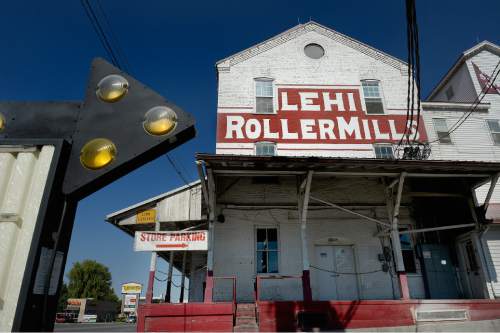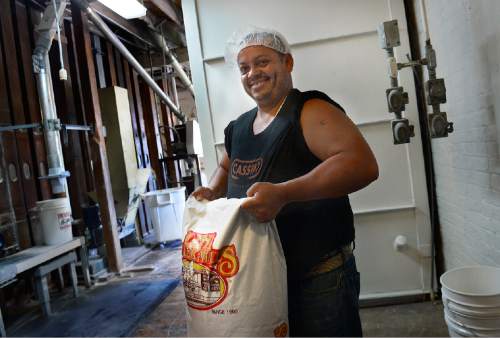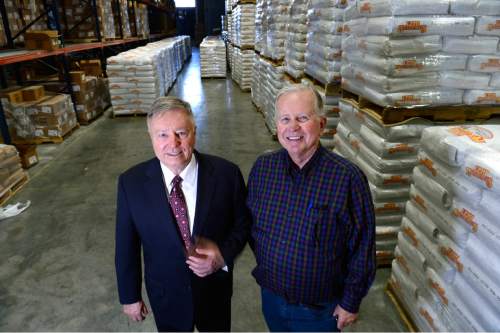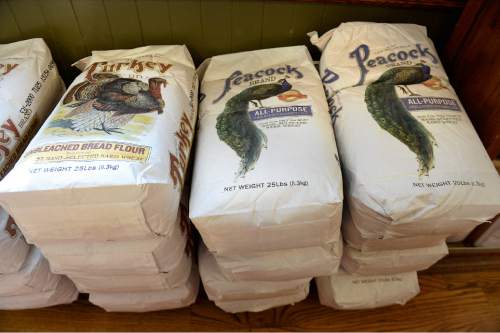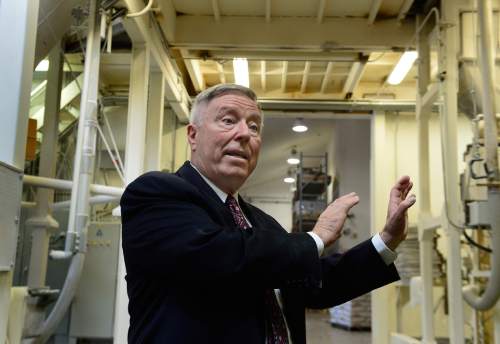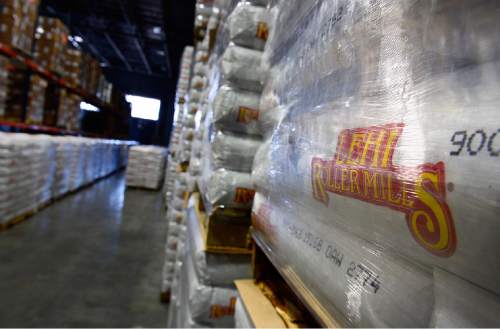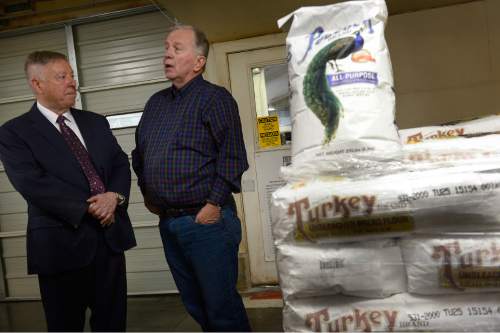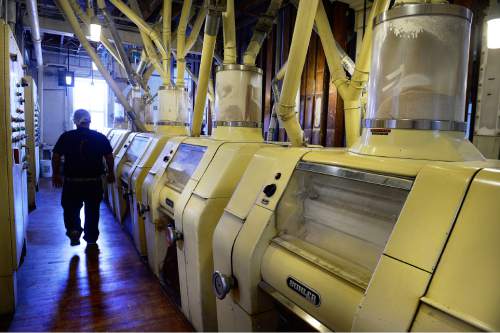This is an archived article that was published on sltrib.com in 2015, and information in the article may be outdated. It is provided only for personal research purposes and may not be reprinted.
Lehi • Three years after nearly going out of business, historic Lehi Roller Mills is flourishing.
The familiar white cluster of wheat silos and milling facilities on Lehi's Main Street— backdrop for the 1984 film "Footloose" — is steadily grinding out specialty flour products as it has for three generations, while its financial outlook continues to improve.
Yearly sales from the 110-year-old mill are growing by double-digit percentages these days. New management has pumped in fresh capital, fixed a hit-and-miss inventory system, and found new customers among foodies, discerning bakeries, organic aficionados and national retailers such as Costco and Wal-Mart.
The company with a long family tradition recently expanded into an 18,000-square-foot warehouse in nearby American Fork to accommodate additional storage and distribution demands. The mill site remains a homey storefront, where walk-in clients buy distinctly labeled bags of flour and a widening range of gourmet mixes for pancakes, muffins, cookies and brownies.
"It's always exciting to see a business back and thriving," Lehi Mayor Bert Wilson said, "but especially one that's a landmark for the whole state."
Businessman Kenneth Brailsford, who bought the then-struggling company in August 2013, said that a few months ago, the mill began sustaining itself entirely without cash subsidies.
A successful entrepreneur and co-founder of Utah-based multilevel-marketing operations such as Nature's Sunshine and Enrich International, Brailsford said he was thrilled "to see such a historic place and business overcome the obstacles it faced in the past."
Lehi Roller Mills was founded in 1906 by George G. Robinson, son of a Delaware miller who based the family business on producing top-quality flour from select crops of red and white wheat grown by farmers across Utah and, eventually, Idaho.
Robinson's descendants built a devoted following among longtime Utahns for many of the mill's products, especially the pancake mix. Successive generations also forged and maintained ties with a network of area growers, suppliers, vendors and wholesalers.
The mill was listed on the National Register of Historic Places in 1994.
But, by 2012, a string of financial problems growing from government bureaucracy and the Great Recession pushed Lehi Roller Mills close to bankruptcy. Locals feared the homespun icon next to Lehi High School would close and be demolished.
Rather than liquidate the company and pay business- partners-turned-creditors pennies on the dollar, then-mill owner R. Sherman Robinson sought an angel investor. Brailsford's holding company, KEB Enterprises, acquired the facility for $4.68 million.
In an interview Wednesday, Brailsford said he made the crucial decision early on to keep Robinson, now 67, and several other veteran managers on the payroll, currently at 32 employees.
Their institutional knowledge proved key to the turnaround. "I thought flour was flour," Brailsford said, "but it really isn't."
Through a century of studying wheat strains, growing techniques, crop yields, flour processing and mixing, nutritional value and flavor, Lehi Roller Mills has developed tastier flours, he said, with up to 10 percent greater baking yield than its competitors.
Brailsford also focused on solving periodic interruptions in the mill's wheat supplies due to fluctuating yields of its 100 or so growers. With a revamped approach to purchasing and beefed-up inventory levels, the company has restored confidence — and sales — among large-scale buyers who might have worried their flour supplies would abruptly run out.
"We maintain a lot more wheat on site," said Robinson, who remains general manager.
Its boutique approach and reputation for quality have earned Lehi Roller Mills loyal patronage among high-end bakeries, including Kneaders Bakery & Cafe chain and artisan-bread makers at Harmons Grocery stores. Gourmet pizzerias in New York that once imported flour for their crusts from Italy now rely on varieties made at the Lehi plant.
Robinson said mill products continue to hold nostalgic appeal among Utahns living across the country.
In tandem with shifts in U.S. tastes toward locally grown and more nutritious foods, the company's many strategies have put it back in the black.
Sales rose by 68 percent from 2013 to 2014, according to its financials, and are up 148 percent so far this year. Its offerings reach shoppers at hundreds of retail outlets nationwide.
Brailsford's new goal is to build the business slowly and gradually, while updating mill equipment as cash flow allows.
"It's really a unique piece of Utah history," he said, "and we're committed to the growth of Lehi Roller Mills."
Twitter: @TonySemerad


